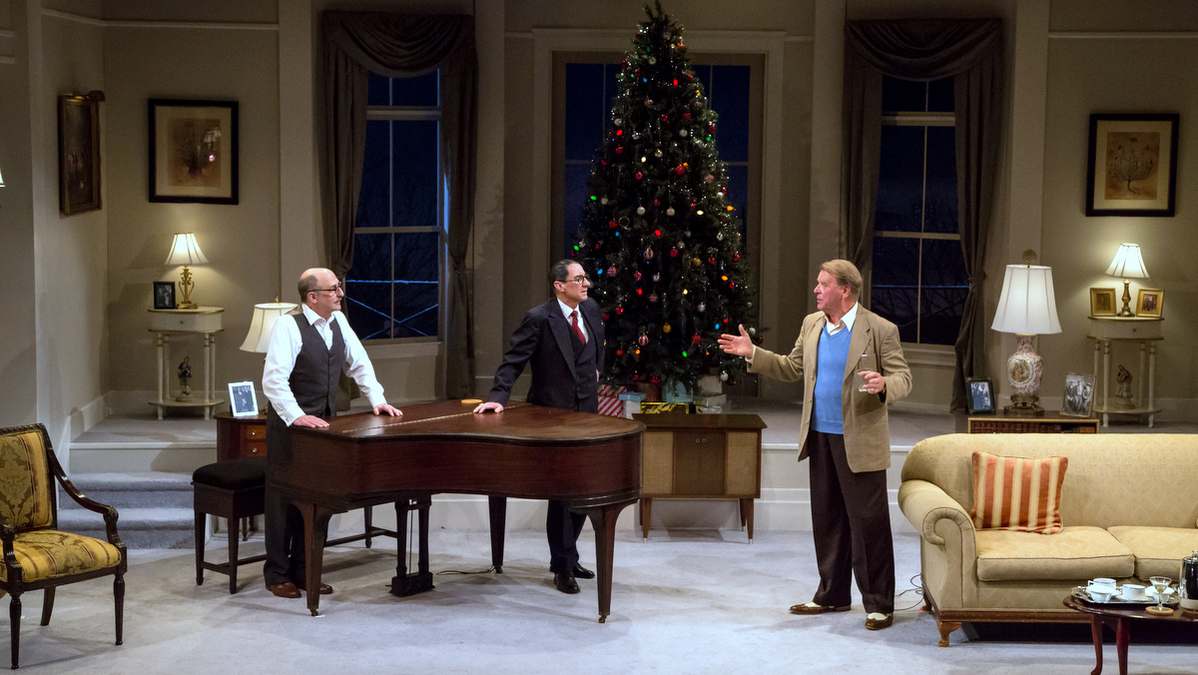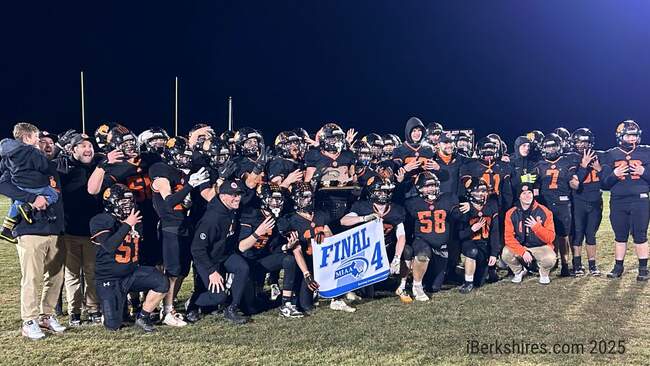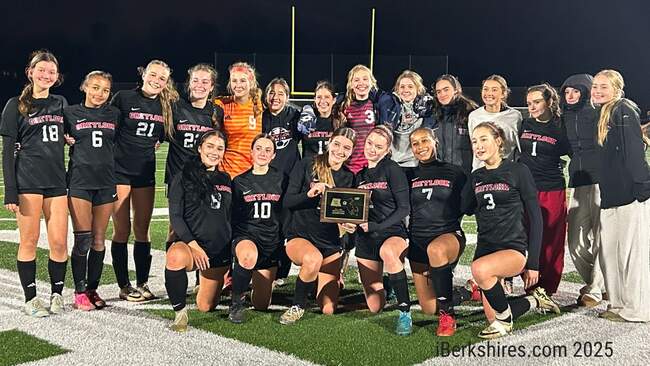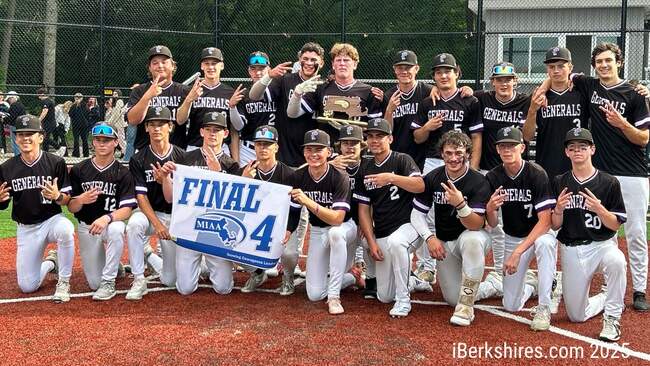
Coming Back Like A Song: Cabaret or Play?
"Hannah and Her Sisters" had a scene like this. So did many other movies.
Imagine a party in a New York City home. Two former musical performers are urged by the gathering to relive their old hits. Everyone gathers around the piano and off the performers go – amidst "oohs" and "ahhs" in recognition as an old song begins and polite applause as it ends. Then on to the next song.
"Coming Back Like A Song," a new play about Irving Berlin, Harold Arlen and Jimmy Van Heusen that just opened at the Berkshire Theatre Group’s Fitzpatrick Main Stage, is a lot like the above scene only the composers themselves are the performers. The play has a few themes – to write or not to write a rock 'n' roll music, mental illness, commitment – but no real plot. No conflict. Certainly no narrative arc. It’s more like a cabaret act.
"Coming Back Like A Song" takes place on Christmas Eve in 1956. Outside it is snowing. Inside a piano sits at center stage. The three composers have gathered at Berlin’s townhouse to drink, sing and reminisce about their careers on Broadway and in Hollywood and the stars they have worked with. To talk about their wives and women – Van Heusen prefers prostitutes and one-night stands; Arlen has a beautiful wife in a mental hospital; Berlin has a good marriage to his second wife. They bemoan the rise of rock 'n' roll and Elvis Presley, who tops the charts, and foresee the death of melody and their own careers.
While the songs the actors sing are classics in the American songbook (“Cheek to Cheek,” “Over the Rainbow,” “Darn That Dream,” to name just a few), they sing them mostly privately – to themselves or to each other. We don’t get the feeling that they were singing for us, the audience. Their voices are good enough. But for the longest time into this short, 90-minute play, three aging, albeit extremely talented, men reminisce about themselves. Sadly, boredom reigns.
And then, with about a half hour left, everything changed. The characters became funny and likeable. There was energy on the stage and laughter in the audience. It’s hard to pin-point exactly what caused the turnabout. Most likely it was the song Groucho Marx made famous, “Lydia The Tattooed Lady” by Arlen, that was sung by all three actors. It was the first song that was actually performed rather than just sung inwardly. The audience applauded for the first time after a song. (We actually didn’t know when to applaud and when not to.) Perhaps the actors fed off that applause and livened up their performances. Whatever it was, the change was palpable and most welcome. It was hard to believe that what preceded was the same play. We actually began to care about the composers.
Philip Hoffman as Arlen was hands-down the best singer. David Garrison was strong as Berlin. David Rasche was convincing as Van Heusen, although he missed a few notes and had to slide up or down the scale to find them.
Gregg Edelman directed. He found ways to keep the actors moving about the stage even though much of the time they were moving to or from the center-stage piano. The playwright, Lee Kalcheim, did a lot of research about his characters, so probably Berlin really did like to clean a lot as Edelman directed Garrison to do.
We learned in a post-performance talkback that althogh it sounded and looked like the actors were playing the piano, it was actually played by Daniel Mollett backstage watching the action on a closed-circuit video. He timed his playing to when the actors sat down at the piano. Nathan Leigh was the sound designer who caused the notes to appear to come from the piano. No easy task, we were told.
So what can you say about a play that is one-third terrific and two-thirds not? If you’re older and male, this could be your show. Maybe the whole thing. For the rest of us, depending on your available time and your budget, you might find it worthwhile to attend and just listen to the classic songs for about an hour and wait for the fun to begin.
Coming Back Like A Song! Through July 21 at the Berkshire Theatre Group, Fitzpatrick Main Stage, www.BerkshireTheatreGroup.org.
Book by Lee Kalcheim; Music by Irving Berlin, Harold Arlen and Jimmy Van Heusen; Directed by Gregg Edelman; Music Direction and Pianist, Daniel Mollett; Scenic Design by Randall Parsons, Sound Design by Nathan Leigh; Costume Design by David Murin, Lighting Design by Oliver Wason.
Tags: Berkshire Theatre Group,















